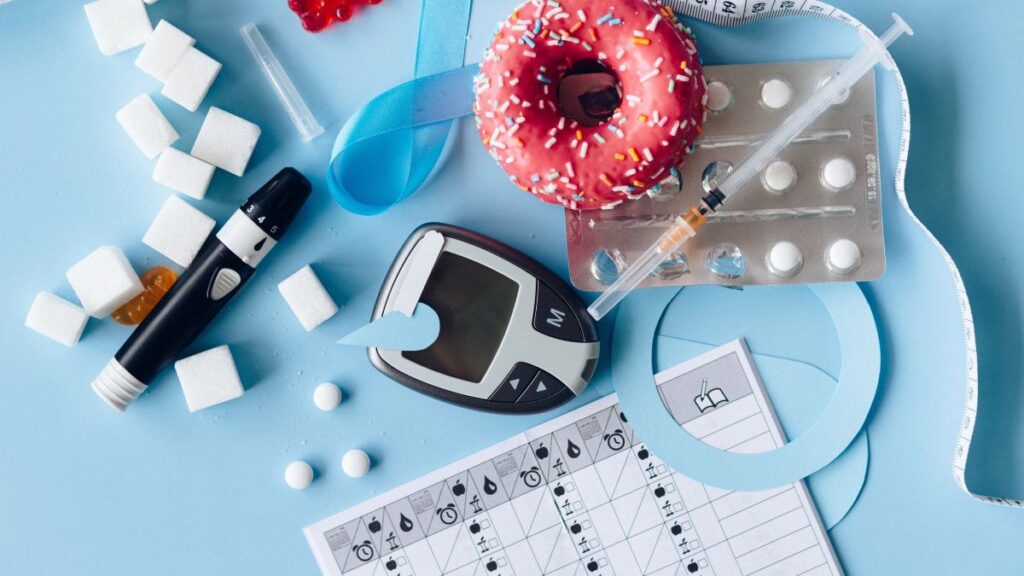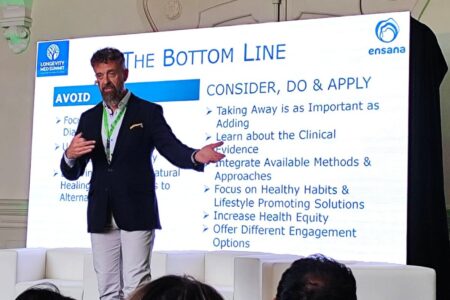When we talk about diabetes, we usually think of figures, controls, glucometers and treatments. But the reality goes far beyond that. Living with diabetes means managing every day a chronic condition that affects not only the body, but also the mind and emotions.. Everyday decisions about food, physical activity or rest become constant acts of self-care that, without adequate support, can lead to exhaustion, frustration or anxiety.
The psychologist Francisco Javier Hurtado Núñez, of the Psychological Specialities Centre in Seville, sums it up: “Diabetes is the clearest example of a pathology that must be understood from a bio-psycho-social point of view. It cannot be approached solely from the medical point of view; the emotional and social aspects must also be taken into account”.
This integrative vision is particularly relevant in the framework of the World Diabetes Day, on 14 November, when different entities, such as the Foundation of the Spanish Diabetes Society (FSED) and the Spanish Diabetes Federation (FEDE), The aim is to raise awareness of the importance of emotional wellbeing in the management of the disease.
Time in emotional range
In diabetes, the concept of time in range (TIR) measures the percentage of the day when glucose levels remain within target. But, as Hurtado emphasises, it is not enough to have a good glycaemic TIR if emotional wellbeing is out of range.. Hence his proposal to incorporate the Emotional IRR as a new health parameter: how much time per day a person with diabetes feels calm, motivated and in balance.
Often, the emotional sphere goes unnoticed in the medical consultation, absorbed by the urgency of checking blood tests and adjusting doses. However, mind and body are deeply connectedAnxiety, stress or sadness directly influence metabolic control, and vice versa.
People with diabetes are at increased risk of experiencing depression, anxiety, distress, or eating disorders, The daily effort required to maintain a balance is the result of this. Hence the importance of incorporating psychology professionals into multidisciplinary teams and of integrating the emotional education in accompaniment programmes.
Breaking taboos: sexuality and self-perception
Diabetes also has an impact on intimate life and self-esteem, although this remains a big taboo. The Professor Loreto Mendoza, from the University of Granada, reminds us that up to 50% of people with diabetes may develop sexual dysfunction in the first few years after diagnosis. In women, hormonal change and fatigue can affect libido and confidence; in men, erectile dysfunction is also a possible cause of sexual dysfunction. early marker of cardiovascular disease.
Addressing sexuality without taboos is part of holistic wellbeing. Recovering the connection with one's own body, working on self-esteem and maintaining open communication within the couple are key steps to live diabetes to the full, without giving up pleasure or the emotional bond.

Well-being in life and work
Emotional health also extends to the workplace. Many people with diabetes still struggle with stigma and discrimination in their working environment. Adapting working hours, receiving psychological support or having access to safe spaces to monitor blood glucose levels are basic measures that are not always guaranteed.
Welfare, in this sense, also implies rights, empathy and social education. A person with diabetes should not live for the disease, but with it, integrating it into his or her life with serenity, self-care and acceptance.
Moving, breathing, accepting
As the Andalusian sportsman recalls Manuel Pérez López, Azukita“, diabetes is a ”pathology of trial and error“, but also a teacher of patience and self-knowledge. ”We have to internalise that we live with diabetes, not for diabetes. Not everything is perfect, but with today's means and the help of professionals and associations, we can achieve balance and wellbeing,“ he says.
His message sums up what anyone, with or without diabetes, should remember: health is balance between body, mind and emotion. Taking care of what we eat, moving every day, managing stress and asking for help when we need it is not weakness, but wisdom.
Because living well is not just about having good clinical outcomes. It is about feeling at peace with ourselves, at every possible level.






